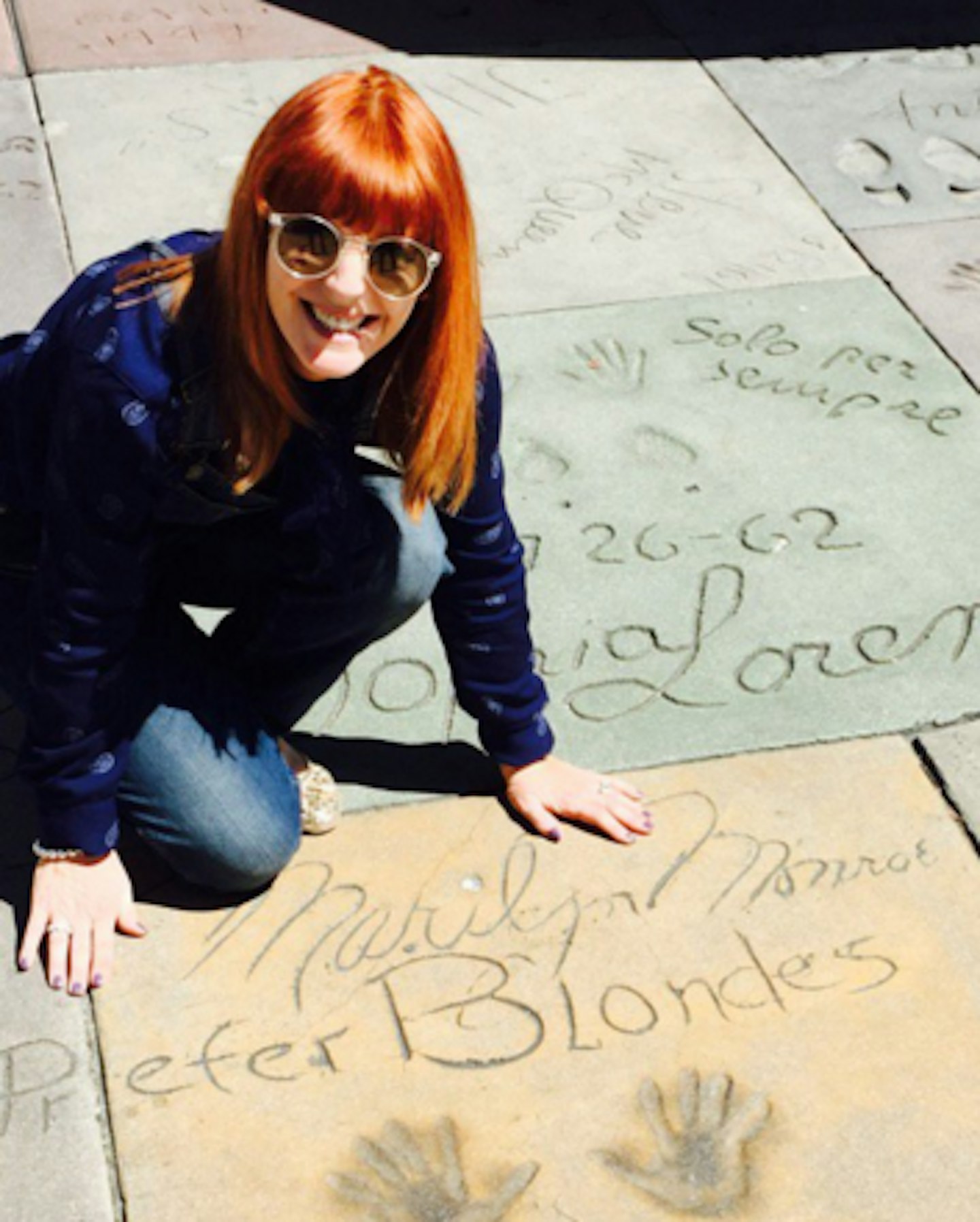She revealed that after experiencing chest pains and palpitations for months on end, she thought there must be something horrifically wrong.
However, blood tests revealed that the TV presenter had, in fact, gone into early menopause.

She told The Daily Mirror that the pain was so horrific that she genuinely thought she was having a heart attack:
"I didn’t know what was wrong at first.
"I was getting palpitations and pains in my chest. It was so bad I went to hospital thinking I was having a heart attack. And I would be shaking, feeling like I was on a ship, wanting to be sick.
"There was this awful feeling of anxiety too. It was like butterflies in my tummy, combined with the feeling of being dropped from a great height. It would wake me up in the night; I’d be covered in sweat, panicking about everything.”
Yvette then explained how the pain affected her state of mind – spiralling her into a period of depression.
"Karl or our kids would only have to say the slightest thing, and I’d just grab my car keys and drive anywhere, park up and sit for an hour crying like somebody had died."
After previously doubting HRT (hormone replacement therapy, a treatment used to relieve symptoms of the menopause) because her mother had breast cancer and vitiligo - she decided to try natural alternatives instead.
"So I tried every natural menopause remedy instead. Even magnets in my knickers!
"Nothing worked. I still couldn’t stand up without feeling like I was about to fall over."
She then read an article highlighting the safety of taking HRT and proceeded to take it. Yvettte described HRT as like ‘somebody lifting a black veil.”
What is the menopause?
The menopause, according to the NHS is a natural part of ageing that usually occurs between 45 and 55 years of age, as a woman's oestrogen levels decline.
In the UK, the average age for a woman to reach the menopause is 51.
However, around 1 in 100 women experience the menopause before 40 years of age. This is known as premature menopause or premature ovarian insufficiency.
What are the symptoms of the menopause?
Most women will experience some of these common symptoms around the menopause. Of course, these vary from woman to woman.
Symptoms can be known to start a few months or a few YEARS before your periods actually stop.
These include:
- Changes to your periods
- Hot flushes
- Night sweats
- Trouble sleeping
- A reduced libido (sex drive)
- Problems with memory and concentration
- Vaginal dryness
- Headaches
- Changes to your mood
- Heart palpatations
- Stiffness of the joints and aches and pains
- Reduced muscle mass
- Reoccurring UTI’s, such as cystitis
If you are worried about any of these symptoms, you must see your GP for help and guidance.
What are the treatments to the menopause?
Not all women are keen on the idea of using treatments to relieve the symptoms of the menopause. Many believe that natural treatments are the best.
However, many also find the menopause particularly troublesome and find that the menopause is detrimental to their everyday life so they opt to have a little bit of help.
HRT – Hormone Replacement Therapy involves taking oestrogen to replace the decline in your body's own levels around the time of the menopause. This can relieve many of the associated symptoms.
**There are two types of HRT: **
- Combined HRT (oestrogen and progestogen) for women with menopausal symptoms who still have their womb ( studies show oestrogen taken on its own can otherwise increase your risk of womb cancer)
- oestrogen-only HRT – for women who have had their womb removed in a hysterectomy
**Natural remedies: **
**Black Cohosh **
Black cohosh is among the most popular and longest-studied natural hot flash remedies for women who don’t want to turn to hormone replacement or antidepressants to treat their menopause symptoms.
It’s derived from the buttercup family and comes in many forms: capsules, tablets or liquid.
**Vitamin D **
Vitamin D is an essential building block for a healthy body. It promotes healthy bone renewal, normal cell growth, and hormone balance, which are all important for menopausal women.
It comes in tablet form.
A healthy lifestyle
Studies have shown that a healthy diet, regular exercise, getting some sun, stopping smoking and cutting down on alcohol relieves a lot of symptoms of the menopause.
For more on menopause, visit the NHS website.
Can you relate to Yvette's story?
**Tell us over on Facebook and Twitter (@CloserOnline). **
***You may also like to read: ***
Hysterectomy surgery: Everything you need to know about getting a hysterectomy
.jpg?ar=16%3A9&fit=crop&crop=top&auto=format&w=1440&q=80)